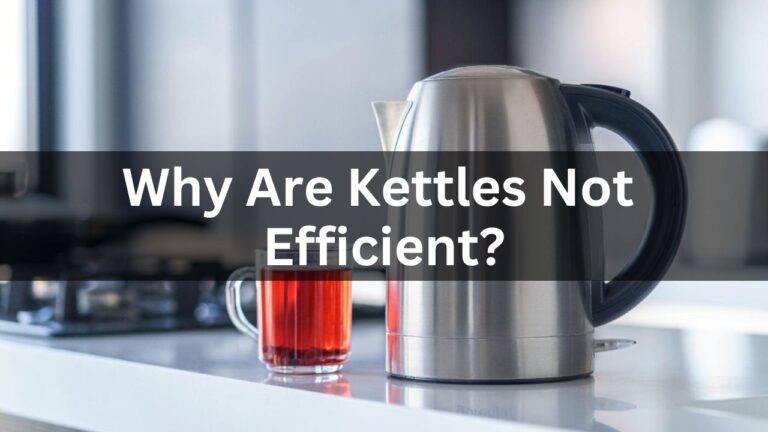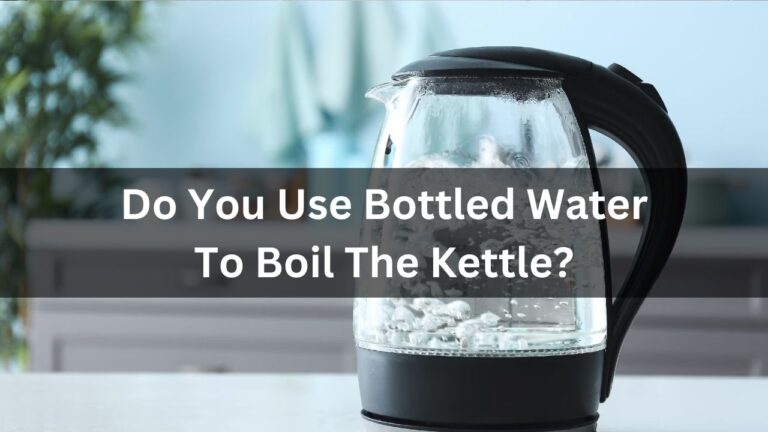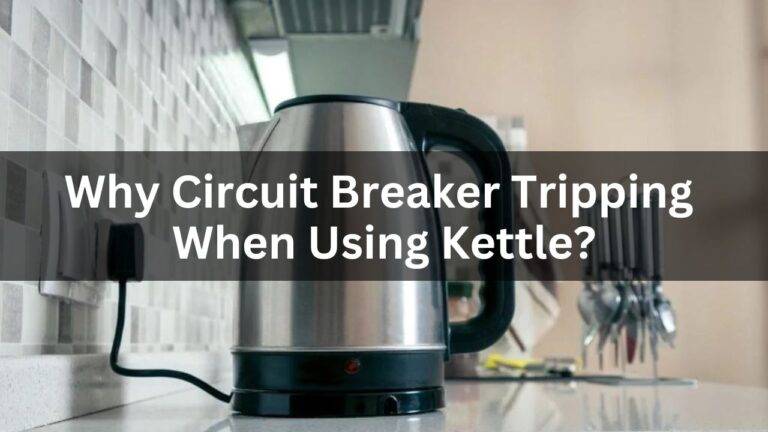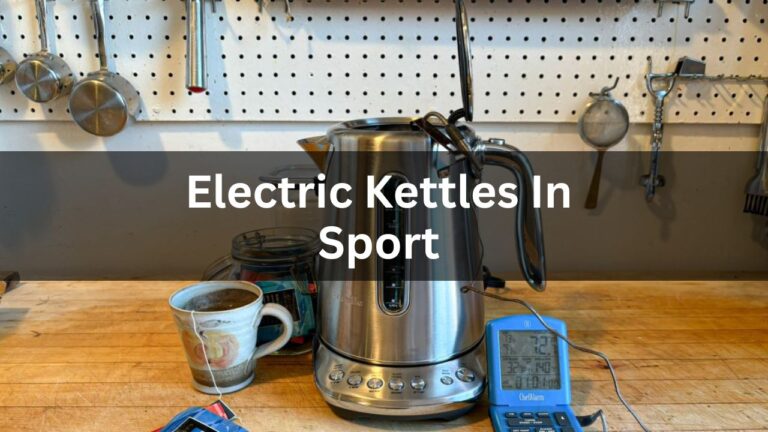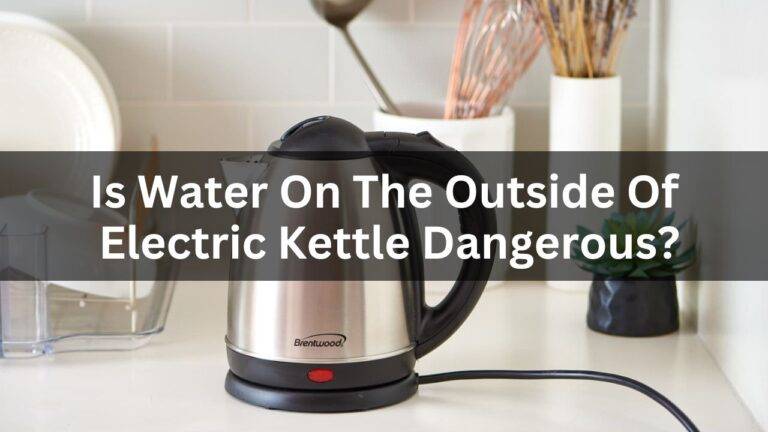Why Shouldn’t You Boil Kettle When Empty?
Like many people, you may have heard that empty boiling of a Boil Kettle is very harmful. But do you know why? Why is there so much emphasis on never boiling the kettle empty?
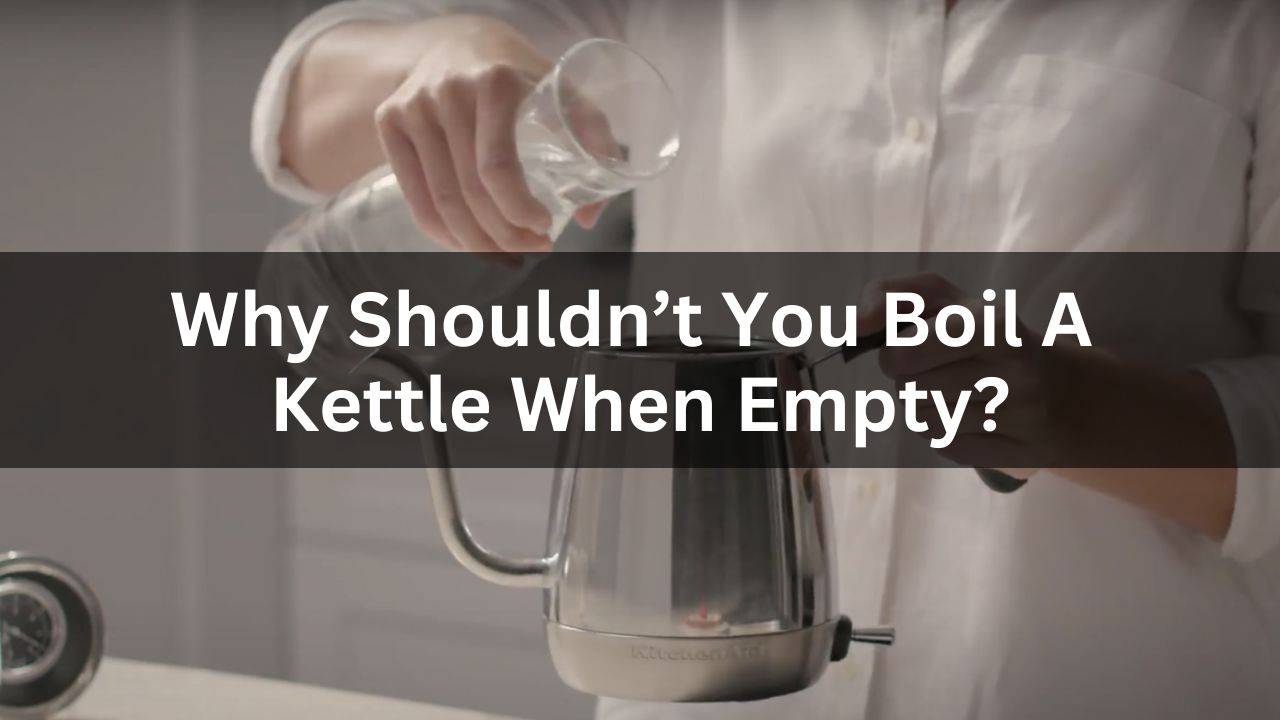
Like many people, you may have heard that empty boiling of a kettle is very harmful. But do you know why? Why is there so much emphasis on never boiling the Boil Kettle empty?
The heating element may sustain serious damage If a kettle is run without water. The kettle may malfunction due to overheating and burning of the heating element. In addition, melting plastic surrounding an overheated device might release harmful gasses and ignite a fire.
You should always fill your kettle with water before boiling. Because it’s empty heating not only affects the heating element but also the interior and exterior parts of it. It can also catch fire which could be very dangerous.
After reading this article you can get the idea of why it is important to fill the kettle with water before boiling. You will also get tips for remembering to fill it before heating.
Contents
Side Effects Of Boiling An Empty Kettle:
Boiling an empty kettle proves very dangerous. Because it badly affects the heating element, interior, and exterior of the kettle. Here are some side effects of boiling an empty kettle
Destruction Of Heating Element:
Running a Boil Kettle without water can seriously harm the heating element. The heating element is the most important part of the kettle.
It may malfunction if the heating element burns out from overheating. A broken heating element in it might become dangerous and result in burns or fires if you use it.
Destruction Of Kettle’s Interior:
Kettle internal corrosion and damage can also result from running a kettle without water. The internal metal may corrode due to the heat from the heating element. Due to this corrosion and other damage occurs.
Also Read: Is It Dangerous To Boil Water In A Plastic Electric Kettle?
Melting Of Plastic:
Many kettles consist of plastic handles. Or their external part is made up of water. When we heat the empty kettle. It easily overheats.
The plastic surrounding the heating element may melt if it burns out. Once destroyed, there is no way to fix it; you will need to purchase a new kettle.
Can A Kettle Explode Due To Empty Heating?
The kettle may sustain severe damage from overheating the heating element, making it useless. Overheating can cause detrimental effects on it, from discoloration and warping to total element failure. [1]
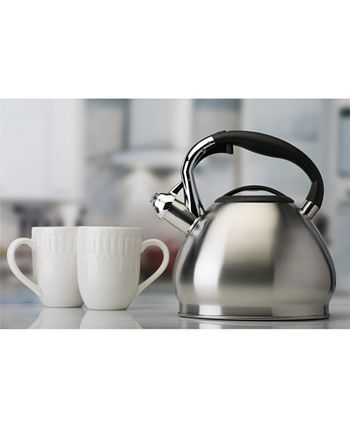
And in the worst situations, it can also catch fire. Another risk associated with running a Boil Kettle without water is the accumulation of steam within the appliance, which can explode.
It may burst due to the pressure from the steam, which could result in serious injury or damage to your kitchen. If you are not able to control fire on the kettle in time, you may also face many more losses.
Also Read: Can We Revisit Why Aluminum Kettles Are Bad?
Can We Use A Kettle After Empty Boiling?
If you are off the stove or off the switch of the empty kettle. Empty boiling doesn’t destroy the heating element or interior of it. Then you can reuse it. But it might not be possible to fix it if you run it without water and break the heating element or the interior.
Kettles without water have the potential to burn residue from prior boiling. Typically, this residue consists of a mixture of metals, minerals, and other water-borne contaminants.
Any beverage you brew with the kettle may taste less appetizing due to the charred residue’s bad flavor and odor. These burnt plastic residues can cause many life-threatening diseases.
That’s why you will need to make the costly purchase of a new kettle. It’s essential to use your kettle appropriately and adhere to safety precautions in order to prevent this.[2]
Also Read: Is it Safe to Use Cold Water in an Electric Kettle?
Tips for Remembering to Fill the Water Kettle Before Heating:
It’s crucial to remember to add water before starting the kettle in order to avoid running it without any water. Once you’ve drained it, fill it up with water right away to establish a habit.
No doubt this habit is very beneficial for you as it greatly reduces the chances of boiling an empty kettle. But it also proves dangerous for the Boil Kettle. Because by doing this limescale production increases in it.
Alternatively, you might use a sticky note next to the kettle. Or you might set a reminder on your phone. The last two tips prove more beneficial because there is no side effect of these. If you want to avoid empty boiling of the kettle, you can use these tips.[3]
Also Read: Does The Steel Body Of A Kettle Get Shocked?
Safety Tips for Efficient Kettle Use:
It can be risky to run a kettle without water and could harm both the kettle and your kitchen.
Adhering to safety precautions is essential, and you should always fill it with water before using it.
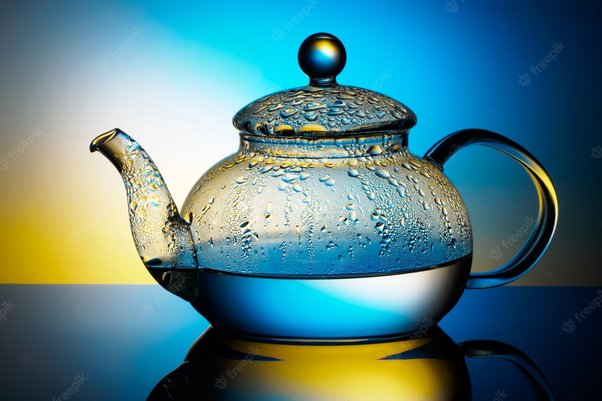
- Never forget to monitor the water level and steer clear of adding too much or too little.
- When it is boiling, never open the lid.
- You shouldn’t touch the hot kettle.
- Avoid filling over the max mark to prevent hot water ejection.
- Make sure it never runs out of water. It should cool down, then be unplugged and refilled with cold water if it does boil dry.
You can enjoy a nice cup of tea or coffee without worrying about the dangers of running a kettle without water if you follow these safety measures.
Also Read: Do You Use Bottled Water To Boil The Kettle?
Final Words:
I hope this article proves helpful for you. Now you have the reason why we do not heat the empty kettle. Heating an empty kettle can drastically damage the heating element.
The heating element is one of the basic parts of it.
And if this is damaged, how will the kettle work? Heating it empty also affects the interior metal of it. Because it corrodes easily after overheating. Its plastic parts can melt.
In case you let it boil empty for too long and don’t watch it, it can catch fire. This fire can burn not only your kettle but also your kitchen. So make sure you always fill it with water before heating.
FAQs
Q: What happens if you boil a kettle without water?
A: Boiling a kettle without water can cause the heating element to overheat. This can lead to damage, including burning or warping of the element, and may render the kettle inoperable.
Q: Can boiling a kettle when empty be a fire hazard?
A: In extreme cases, yes. Overheating due to lack of water can potentially lead to electrical malfunctions, posing a fire hazard. It’s crucial to avoid operating the kettle without water to ensure safety.
Q: Does boiling an empty kettle affect its warranty or lifespan?
A: Boiling a kettle when empty is often considered misuse and may void the warranty. Additionally, the excessive heat generated can shorten the lifespan of the kettle.
Q: What’s the best practice if you accidentally boil a kettle without water?
A: If accidentally boiled without water, turn off the kettle immediately, unplug it, and let it cool. Check for any signs of damage before attempting to use it again. It’s essential to follow the manufacturer’s guidelines in such situations.
Q: Is it safe to boil a kettle when it’s empty?
A: It is not safe to boil a kettle when it’s empty. Doing so can cause damage to the heating element and pose safety risks.
Q: Can boiling an empty kettle affect its longevity and performance?
A: Yes, boiling an empty kettle can cause excessive stress on the heating element, potentially shortening the kettle’s lifespan and compromising its efficiency.
Q: Does boiling an empty kettle pose a fire hazard?
A: Boiling an empty kettle can lead to overheating, which may pose a fire hazard. Modern kettles often have safety features, but it’s best to avoid this practice altogether.
Q: Can the heating element get damaged if I boil the kettle without water?
A: Yes, the heating element relies on water to dissipate heat. Boiling the kettle without water can cause the element to overheat, leading to damage and reduced performance.
Q: Are there safety mechanisms in place to prevent damage when boiling an empty kettle?
A: Some kettles have automatic shut-off features, but relying on these mechanisms is not a substitute for using the kettle as intended. It’s crucial to always ensure there’s water before boiling.
Q: Can boiling an empty kettle affect the taste of water in subsequent uses?
A: Boiling an empty kettle may produce undesirable odors or tastes that can transfer to the water in subsequent uses. It’s advisable to avoid this practice for the best water quality.
Q: Does the type of kettle material influence the impact of boiling it empty?
A: Different materials may respond differently, but all kettles are designed to function with water. Boiling any kettle without water can lead to damage, regardless of the material.
Q: Can boiling an empty kettle result in loud noises or unusual sounds?
A: Yes, boiling an empty kettle may produce loud noises, such as hissing or popping, indicating potential damage to the heating element. It’s essential to stop the process immediately.
Q: Is there a recommended method for preventing accidental boiling without water?
A: Develop a habit of checking the water level before turning on the kettle. Being mindful of water levels ensures safe and proper use, preventing damage to the kettle.
Q: What potential damage can occur to the heating element of a kettle when boiling it empty, and are there specific signs or indicators users should be attentive to in order to identify such damage?
A: Explore the potential damage to the heating element when boiling a kettle empty and provide signs for users to identify such damage.
Q: Can boiling a kettle without water lead to overheating or excessive temperatures, and are there safety mechanisms in modern kettles that protect against such situations?
A: Discuss the risk of overheating when boiling a kettle without water and highlight safety mechanisms in modern kettles that protect against excessive temperatures.
Article You Might Be Interested:

